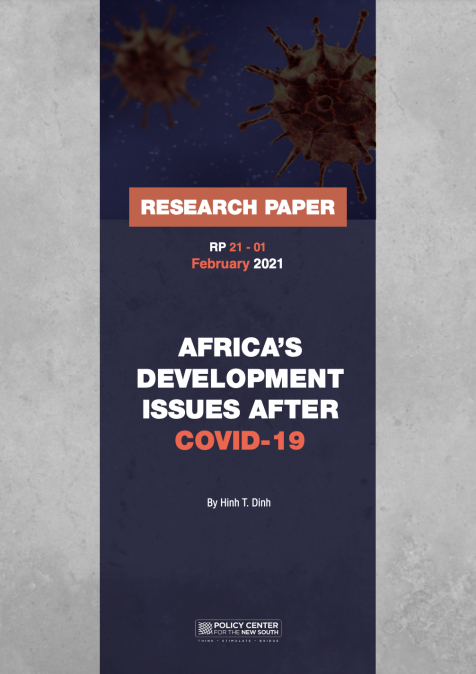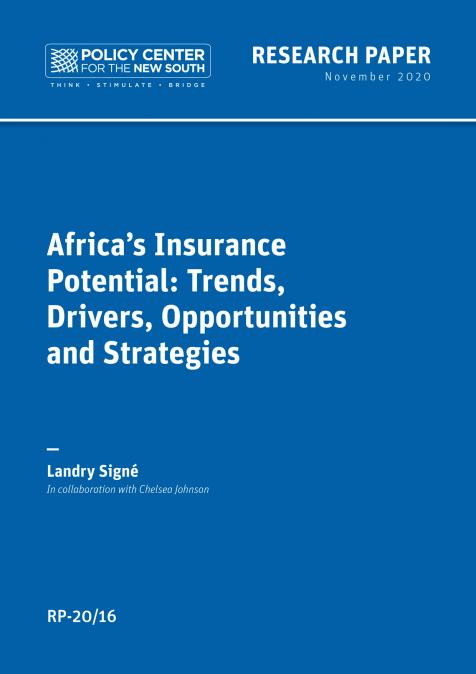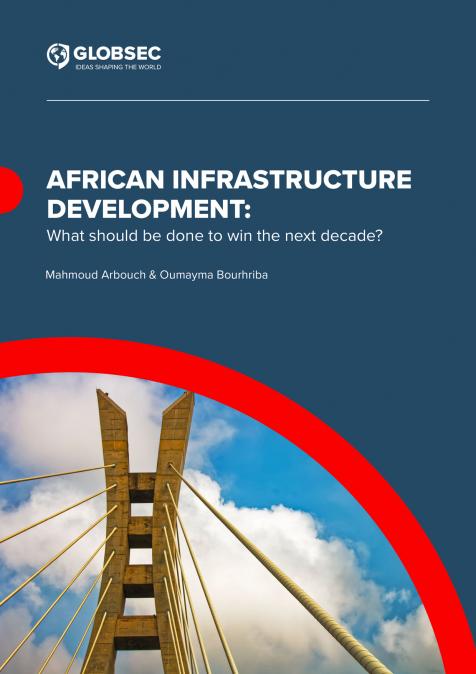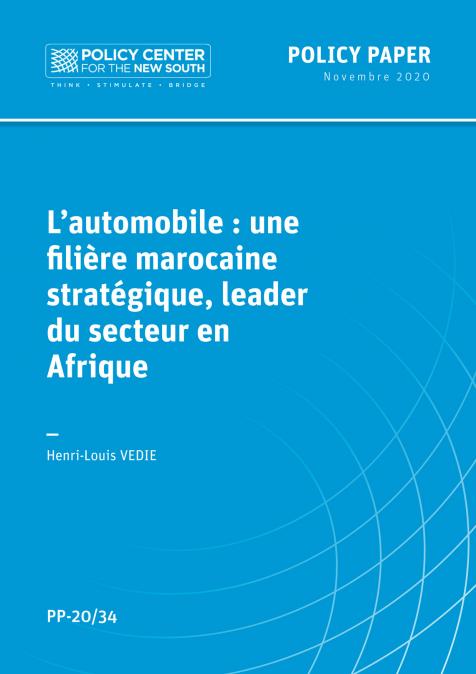Publications /
Opinion
Despite the global magnitude of the COVID-19 crisis, the response to the pandemic has mainly occurred at national level, with very poor global coordination so far. For Africa, which will provide one in four of the world’s consumers by 2050, coming out of the crisis will cost at least $100 billion. The average ratio of public revenue to GDP in African countries is only 19%, and the debt burden already absorbs 22% of that revenue, giving many African governments limited scope compared to other countries when planning their recoveries. This is especially the case in contexts of fragility characterized by a lack of institutional capacity to initiate and implement complex policies. That is why the private sector should be instrumental in providing solutions and the development community should encourage it to take a more active role.
Context: sanitary risks, financial constraints, and economic hurdles
The profound pre-existing health, social, and economic difficulties experienced by many African countries have become even more severe with the unfolding of the coronavirus outbreak.
African countries are in principle more exposed to the effects of COVID-19 given their large proportions of highly vulnerable populations. The high rate of tuberculosis would make the virus even more lethal. The large number of HIV-positive people will compound the health consequences of COVID-19 because they have less immunity with which to resist the virus. The significant ongoing decrease in vaccination rates is likely to also cause new measles epidemics. However, the African population is young, with an average age of 20 compared to 47.3 in Italy. Although young people are much more likely to contract the virus, older people are far more likely to die from COVID-19.
Many African governments also face more significant challenges because of their limited tax resources. Capital outflows from these countries are reaching unprecedented levels, putting pressure on dwindling international currency reserves. There will also be an inevitable fall in foreign direct investment. One estimate is that the pandemic will cause the continent’s economy to shrink by 1.25% in 2020. All export credit agencies have revised their ratings. At the start of April, Credendo, the Belgian export credit agency, downgraded some countries in the region because of increased commercial risk; Morocco, Gambia, Burkina Faso, Ivory Coast, Ethiopia have all seen their ratings go down. Given these constraints and the pandemic, the International Monetary Fund has approved support to many African countries through its Rapid Credit Facility.
The economic impact will not be uniform, and the consequences will be industry-specific. Yet, the fall in international trade will hit African economies hard because of their overwhelming reliance on exports to advanced countries of their unprocessed raw materials. Most African economies will suffer from spillover effects since they will be hampered by transmission channels including the drop in commodity prices, tourism, and remittances. Copper, cocoa, and palm oil prices have collapsed since the beginning of the year. The lockdown will do more damage to tourism than other sectors because of its lower cash buffer capacity. The tourism sector, even though relatively immature on the continent, except in some countries, has grown exponentially over the last ten years. In 2018, it accounted for 24.3 million jobs in Africa, with a contribution of $194.2 billion to the regional economy. In these sectors in particular, many bankruptcies will occur, and all the advances made in recent years are in danger of vanishing. The destruction of accumulated know-how could even be more harmful than the destruction of capital.
What role for the private sector?
All current policy strategies to fight COVID-19 have two pillars: reinforcement of hospital capacity (e.g. the number of intensive-care beds, respirators, and masks) and containment. Even though increasing hospital capacity remains the most challenging part of the policy response, many African start-ups have quickly reacted, proposing solutions that are both fast and innovative. In a March 2020 report, the United Nations stressed the urgency of involving the private sector in the response to the pandemic. It stated that "private sector innovation can contribute significantly to the immediate and short-term pandemic response". Private-sector participation has been seen in Senegal, Burkina Faso, and Benin: three countries where support structures fostering innovative entrepreneurship have proliferated over the past few years. SunuCity, a Senegalese app, facilitates the work of the Ministry of Health by allowing people to report incidents or health risks via geolocation, voice notes, and photos. The business incubator Wakatlab, based in Ouagadougou, put in place a production line delivering more than 10 respirators and 1500 visors per week. In Cotonou, a start-up created an online questionnaire that provides medical advice and that informs users whether they could have a COVID-19 infection. These elements show how crucial it is to have innovative ecosystems and how countries with local business incubators were able to react faster.
The containment policy now seems to be the most effective option in the short term. However, African countries will need to alleviate the income loss suffered by the most vulnerable populations, as policy measures to contain the pandemic cripple the economy. For a lockdown to be effective, several conditions are necessary for people to accept confinement, including sufficient food resources and significant savings. Without a robust macroeconomic policy offering a form of universal income to those whose livelihoods are being upended, a real economic collapse can be expected. Furthermore, the Ebola experience has shown that the closure of schools often results in permanent school dropouts, especially among girls.
According to BCG, private companies also have a crucial role to play in helping governments address the economic impact of the pandemic. This is particularly true for large companies and professional associations, which will need to work hand in hand with governments to manage and mitigate the crisis. An excellent example is Morocco, which has set up a special fund dedicated to supporting the economy during the pandemic. This fund was financed by the state budget and the private sector, and helps fund a universal income for both formal and informal workers for an amount of $80 to $200 per month. Moreover, all the masks made in Morocco are distributed across the country through private-supply networks. The Moroccan example could and should be considered a best practice case to be replicated elsewhere. Rwanda has also come up with business support fund to mitigate the impact. In terms of economic resilience, these examples show that African countries with more developed private sectors do better in the context of an emergency, and are likely to do better than others after the COVID-19 crisis.
Critical points
Another critical aspect is remittances from the diasporas. Many money transfer agencies are currently closed, making it difficult for the African diaspora to send money to their families. In 2019, remittances from diasporas to sub-Saharan African countries reached $49 billion and thus exceeded the amounts dispersed by development aid. This stoppage is likely to have acute socio-economic consequences for the region, while undermining the effectiveness of lockdowns. Development agencies should act on this issue to prevent a drop in households’ incomes and financial resources. A sharp course of action would be advocating for money transfer agencies to stay in business.
The various health, financial, and economic consequences discussed above will inevitably have other implications, particularly when it comes to food security and migration. According to Laurent Bosard, Director of the Sahel and West Africa Club at the Organization for Economic Co-operation and Development, "between 15 and 17 million people will find themselves in a very critical food situation in West Africa from August onwards". He stressed that "migration flows will explode. A catastrophic scenario is within the realm of the possible". Food supply will be crucial. During the Ebola crisis in 2014, the price of rice rose by 30% in Guinea. The international food supply chain must be ensured. Otherwise, another migration crisis is bound to take place, in the context of Europe still facing difficulties dealing with the current migratory influx.
What’s next?
David Ricardo's theory of comparative advantage is currently being tossed in the trash in the face of the health crisis. COVID-19 is causing upheavals in global value chains that are not necessarily to Africa's advantage. A new strategic positioning for the continent is hence needed.
Positive consequences are to be expected for e-commerce since this crisis is enabling a ‘great leap forward’ in terms of digitalization. By way of comparison, the SARS crisis of 2003 fostered the adoption of e-commerce by Chinese consumers, ultimately contributing to the outstanding growth of Alibaba. Responding to the digitalization challenge could be an opportunity for African countries that have not been able to develop their private sectors fully.
Finally, the United Nations' Agenda 2030 initiated a pathway to exit the North-South paradigm in development. Most Sustainable Development Goals are related to global issues that cannot be resolved in isolation. This pandemic crisis will undoubtedly sustain the transformation from the old donor-recipient development paradigm to a model of international cooperation. Today the global community is facing a common challenge that requires a comprehensive policy response: the debt issue will prove explosive not only in Africa but also in Europe, and many companies worldwide will go bankrupt. A new world awaits us, perhaps with a new configuration of the business environment and a new design for the international economy. The private sector will remain at the heart of this process of change. Development cooperation must not forget it in its interventions.
The author is an alumnus of the 2019 Atlantic Dialogues Emerging Leaders program and Private Sector Development Expert at Enabel.










